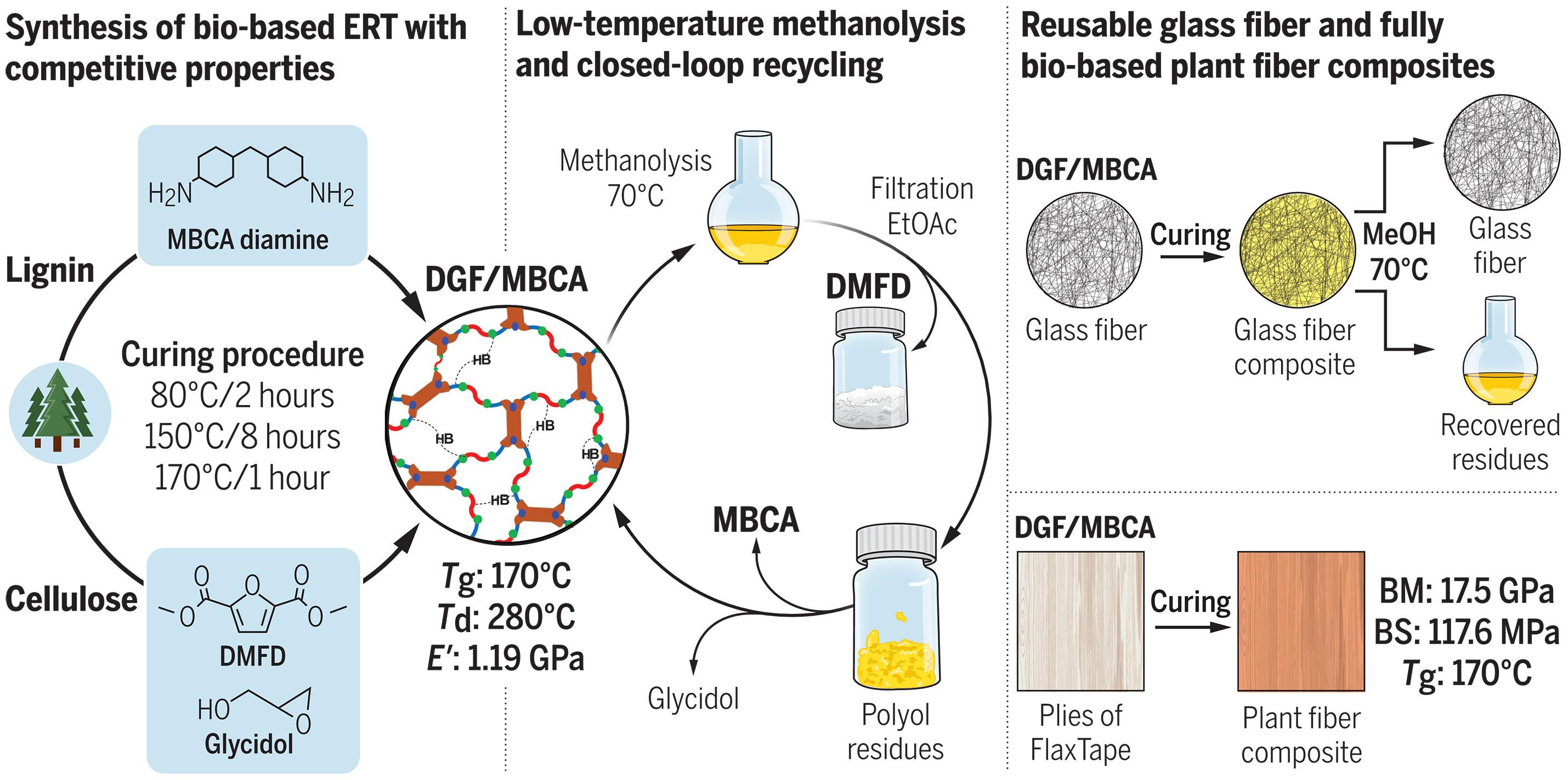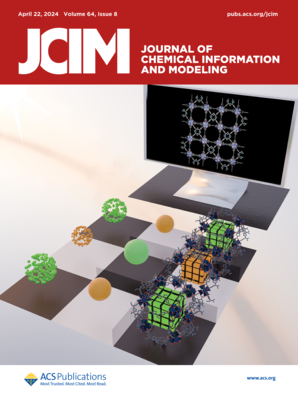通过甲醇分解实现生物质衍生环氧胺热固性物质的闭环可回收性
IF 5.6
2区 化学
Q1 CHEMISTRY, MEDICINAL
引用次数: 0
摘要
环氧树脂热固性塑料(ERT)是一类重要的聚合物材料。然而,由于其高度交联的性质,它们的可回收性很差,造成了不可接受的环境污染。显然,我们需要设计出基于可再生资源的固有可回收 ERT。我们介绍了由 2,5-呋喃二甲酸二甲酯(DMFD)、4,4′-亚甲基双(环己基胺)(MBCA)和缩水甘油制备的可完全衍生木质纤维素的环氧树脂(DGF/MBCA)的合成和闭环回收,该树脂具有优异的热机械性能(玻璃化转变温度为 170°C,25°C 时的储存模量为 1.2 千兆帕)。值得注意的是,这种材料在没有任何催化剂的情况下也能进行甲醇分解,再生出 90% 的原始 DMFD。随后,二胺 MBCA 和缩水甘油可通过乙醇分解进行重整。演示了 DGF/MBCA 在玻璃纤维和植物纤维复合材料中的应用和回收。本文章由计算机程序翻译,如有差异,请以英文原文为准。

Closed-loop recyclability of a biomass-derived epoxy-amine thermoset by methanolysis
Epoxy resin thermosets (ERTs) are an important class of polymeric materials. However, owing to their highly cross-linked nature, they suffer from poor recyclability, which contributes to an unacceptable level of environmental pollution. There is a clear need for the design of inherently recyclable ERTs that are based on renewable resources. We present the synthesis and closed-loop recycling of a fully lignocellulose-derivable epoxy resin (DGF/MBCA), prepared from dimethyl ester of 2,5-furandicarboxylic acid (DMFD), 4,4′-methylenebis(cyclohexylamine) (MBCA), and glycidol, which displays excellent thermomechanical properties (a glass transition temperature of 170°C, and a storage modulus at 25°C of 1.2 gigapascals). Notably, the material undergoes methanolysis in the absence of any catalyst, regenerating 90% of the original DMFD. The diamine MBCA and glycidol can subsequently be reformed by acetolysis. Application and recycling of DGF/MBCA in glass and plant fiber composites are demonstrated.
求助全文
通过发布文献求助,成功后即可免费获取论文全文。
去求助
来源期刊
CiteScore
9.80
自引率
10.70%
发文量
529
审稿时长
1.4 months
期刊介绍:
The Journal of Chemical Information and Modeling publishes papers reporting new methodology and/or important applications in the fields of chemical informatics and molecular modeling. Specific topics include the representation and computer-based searching of chemical databases, molecular modeling, computer-aided molecular design of new materials, catalysts, or ligands, development of new computational methods or efficient algorithms for chemical software, and biopharmaceutical chemistry including analyses of biological activity and other issues related to drug discovery.
Astute chemists, computer scientists, and information specialists look to this monthly’s insightful research studies, programming innovations, and software reviews to keep current with advances in this integral, multidisciplinary field.
As a subscriber you’ll stay abreast of database search systems, use of graph theory in chemical problems, substructure search systems, pattern recognition and clustering, analysis of chemical and physical data, molecular modeling, graphics and natural language interfaces, bibliometric and citation analysis, and synthesis design and reactions databases.

 求助内容:
求助内容: 应助结果提醒方式:
应助结果提醒方式:


